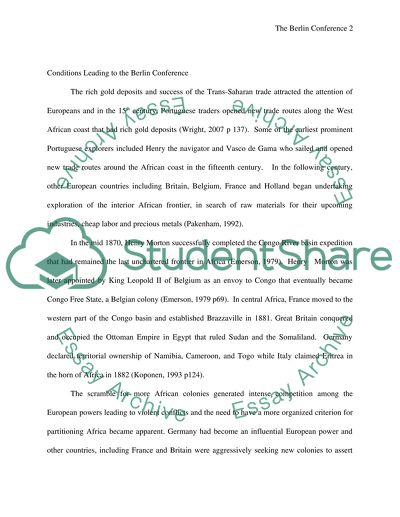Cite this document
(“The Berlin Conference of 1884 and Africa Research Paper”, n.d.)
Retrieved from https://studentshare.org/geography/1432960-the-berlin-conference-of
Retrieved from https://studentshare.org/geography/1432960-the-berlin-conference-of
(The Berlin Conference of 1884 and Africa Research Paper)
https://studentshare.org/geography/1432960-the-berlin-conference-of.
https://studentshare.org/geography/1432960-the-berlin-conference-of.
“The Berlin Conference of 1884 and Africa Research Paper”, n.d. https://studentshare.org/geography/1432960-the-berlin-conference-of.


